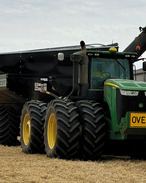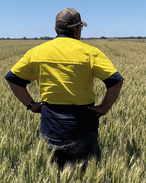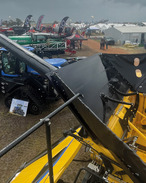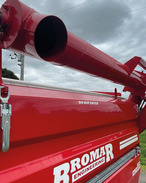In the report, ‘The Russia-Ukraine War's Impact on Food and Agri: What Oceania's Food & Agri Chain has to Plan For', Rabobank says disruptions to trade flows from the two major agricultural powerhouses of Russia and Ukraine have had a major, direct impact on global grains markets.
The disruption will also continue to keep global grain and food prices elevated throughout 2022 and likely beyond.
But it is the war's impact on the key agricultural inputs of fuel and fertiliser - sending prices of both skyrocketing - which will cut into farmer margins in a range of sectors including not just grain, but also livestock and dairy, fresh produce, tree nuts and sugar, Rabobank says.
Rabobank's analysis shows while the European Union's latest sanction plans - which entail a move to ban Russian oil imports by late 2022 - will have a relatively small impact on grain and also fertiliser prices, there will be significant increases for energy prices, which are already very high, as a consequence.
Energy prices - both oil and gas - will rise further, and farmers and the food supply chain will have to prepare for continued high and volatile prices, says report author, RaboResearch general manager for Australia and New Zealand, Stefan Vogel.
"For the Australian food and agri sector, the implications of the planned next round of EU sanctions on Russia are therefore more negative than positive as prices of farming outputs like grains are expected to move substantially less upward than those of input costs like energy and, to some degree, fertiliser," Vogel said.
"Farmers and the food supply chain will have to plan for elevated input costs, not only for fertilisers, but also because of strong energy prices."
Vogel said over the past two decades, Russia and Ukraine had "risen into the ranks of major powerhouses in the food and agri space" to now account for a combined share of 20 to 30 per cent of world exports of several key commodities.
While this year will not see a full loss of grains, oilseeds and fertiliser exports out of the Black Sea, Vogel said, with volumes still flowing from Russia and Belarus - albeit with sanctions making trade more difficult - Ukraine's production and exports in 2022/23 are set to be heavily reduced.
"Ukraine in the 2021/22 season without the war would have shipped about as much wheat, barley and canola to the world market as Australia in the current record season. In addition, Ukraine's corn export volumes are again about the size of the whole Australian grain and oilseed export volume."
























